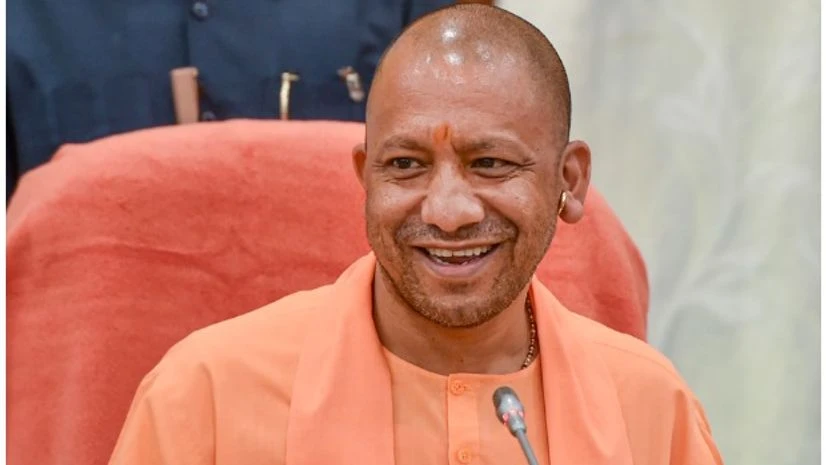Inspired by Prime Minister Narendra Modi, Uttar Pradesh has streamlined its public distribution system by digitalising it to provide subsidised foodgrains to 15 crore people, which has helped the state save Rs 1,200 crore annually, Chief Minister Yogi Adityanath said on Monday.
In his inaugural address at the G20 Digital Economy Working Group (DEWG), Adityanath said, "Today the result is that we are providing foodgrains to 15 crore people through the public distribution system and by using technology, we are also saving Rs 1,200 crore annually."
As part of India's presidency of the G20, the Ministry of Electronics and Information Technology (MeitY) is hosting the first Digital Economy Working Group (DEWG) meeting in Lucknow from February 13-15.
The DEWG, originally called DETF, was formed in 2017 as part of the German G20 presidency with the aim of promoting the implementation of a secure, interconnected, and inclusive digital economy.
With the global digital economy estimated to be worth USD 11 trillion and expected to reach USD 23 trillion by 2025, the DEWG plays a critical role in shaping global policy discourse in the digital space.
In addition to the G20 members, India has invited guest countries (namely, Bangladesh, Egypt, Mauritius, Netherlands, Nigeria, Oman, Singapore, Spain, and the United Arab Emirates) and international organisations such as the International Telecommunication Union (ITU), OECD, the World Bank, UNESCO, and UNDP to participate in the DEWG meetings.
Referring to the UP Global Investor Summit-2023, Adityanath said that through the UPGIS-2023, Uttar Pradesh has received investment proposals worth more than Rs 33.50 lakh crore.
More From This Section
"Uttar Pradesh is fast emerging as a new economy through its digital platform in front of the world," he said.
He said, through the DBT (Direct Benefit Transfer), around 2.07 crore farmers were given PM Kisan Samman Nidhi. Destitute women and elderly people also got the benefit of an old-age pension through the DBT.
Adityanath also said that the digital economy will enable the entire world to become prosperous as 'one family' with the spirit of 'Vasudhaiva Kutumbakam'.
Union minister of electronics and information technology Ashwini Vaishnaw on this occasion said that 2023 is going to be a very important year in many respects.
Under the leadership of PM Modi, India has created a unique framework in the field of digital technology.
This will increase the skill of the people. Digital technology has become part of our life, he remarked.
Vaishnaw also said, "Under these conditions, India has begun to implement public-private partnerships under the leadership of Prime Minister Modi. What is this PPP model?
Take this UPI example, for instance. The Indian government extends an invitation to public participants to build a platform. These comprise a wide range of businesses such as banking, insurance, and e-commerce, he said.
Also, it included 1.2 billion people. There was no monopoly of any one company in this. It has developed into an all-inclusive digital solution. Today it is transacting over USD 1.5 trillion annually and has an average settlement time of just 2 seconds, which is great.
"Countless transactions that are completely transparent happen in a matter of seconds. There is no dominant company in it," he said.
He added, "when COVID troubled us, we could vaccinate such a large population only because of technology. The government started a platform called 'CoWIN', billions of people got registered there, and more than 2 billion vaccinations were done easily in hospitals and clinics.
"The interesting thing was that every piece of data related to vaccination was available on this platform. India has also made progress in this direction, and we will share this future together," he said.
Union minister of state for Electronics and Information Technology Rajeev Chandrasekhar said that in 2015, the prime minister launched the Digital India campaign, which focused on three main areas.
"First and foremost, technology should improve people's quality of life; second, it should provide opportunities; and third, it should be accessible to all and not monopolised by anyone. This was the PM's vision," he said.
"Today, everyone can see the outcome. Because of a lack of technology, previous governments remained ineffective. Even one prime minister (had) said that if we give Rs 100 from Delhi, only Rs 15 reaches the beneficiary. We have been able to overcome that problem now because of technology," Chandrasekhar said.
He also said, "Today the internet has removed the boundaries. It is affordable for everyone in society to utilise. We are currently experiencing the effects of technology. But this is just the beginning. This decade is going to be a decade of big decisions in the field of technology."
Union minister for Heavy Industries Mahendra Nath Pandey said that today, technology is used in every industry, including banking, financial services, retail, manufacturing, healthcare, and education.
With the penetration of information technology into all sectors of the economy, new technologies are also emerging that have become important for business and government. This may be seen in fields like robots, big data analytics, artificial intelligence, and quantum computing, among others, he said.
Pandey added, "The production process has been improved by their use. Products have been refined. This has led to the fourth digital revolution, which is very important for the future digital economy and a better relationship between man and machine. Investment in Industry 4.0 has increased almost ten-fold in the last decade, and is expected to reach 200 billion in 2025. A major part of this investment is to be done by the G20 countries.
(Only the headline and picture of this report may have been reworked by the Business Standard staff; the rest of the content is auto-generated from a syndicated feed.)

)
